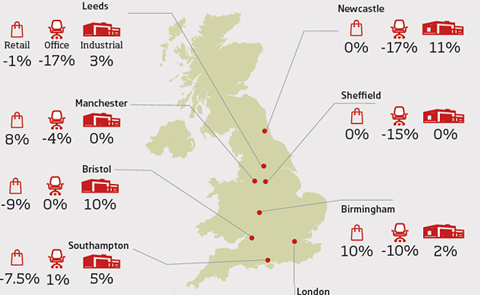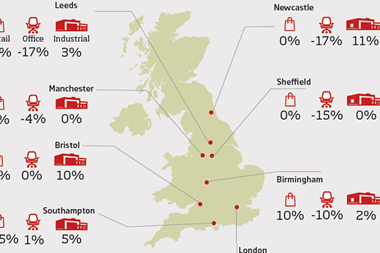Many of us will have had the rare but welcome pleasure of receiving a tax refund from HM Revenue & Customs when audits uncover errors in how tax bills were calculated.

But what if the government, instead of refunding such overpayments, simply shrugged its shoulders, pointed out that the tax originally demanded was reasonably close to the correct bill and insisted on the higher amount being paid?
There would be uproar, and rightly so. And yet this is exactly what the government is planning to push through with regard to business rates.
Under radical changes to the appeals system, the government intends to introduce a measure under which challenges against incorrect valuations will be dismissed if they are deemed to be within “the bounds of reasonable professional judgement”.
So you could prove that the assessment should be lower and still not achieve a rates refund.
The allowable margin of error will not be revealed in the regulations and there is no equivalent elsewhere in our tax code from which to gauge the likely acceptable tolerance.
The determination will be left initially to the judgement of the Valuation Office Agency - which refuses to express a view as to what it regards as “reasonable professional judgement” - and subsequently to the courts, an approach that will paralyse the rating system and leave firms in limbo for years. Some experts have said that for more complex properties a tolerance of up to 15% could emerge.
Obstacle course
The proposed clause is an outrageous attempt by the government to legislate away its mistakes and lower appeal numbers by increasing the burden of challenging an assessment through an obstacle course of an appeals process, reducing the chance of success.
The proposed clause is an outrageous attempt by the government to legislate away its mistakes
The threat has prompted many of the UK’s leading trade organisations to come together. Last week, these bodies, co-ordinated by Gerald Eve, sent a letter to the Parliamentary Joint Committee on Statutory Instruments drafted by law firm Berwin Leighton Paisner, calling for the clause to be rejected.
Perhaps uniquely, the letter has been sent pre-emptively - that is, before the final regulations have been formally presented to parliament - because of the incredibly tight timescales involved before they are due to take effect on 1 April.
Any attempt to second-guess government inactivity risks mistaking lethargy for strategy, but there are concerns that Sajid Javid is aiming to push through the proposals at the last possible opportunity. The letter is designed to ensure proper parliamentary scrutiny of the clause, and hopefully its rejection.

Whatever the reason, the Department for Communities and Local Government (DCLG) has been dragging its feet. The proposed changes were first published in August last year, followed by a consultation period with stakeholders. Despite this closing in the autumn, the responses and conclusions are yet to be published.
With just five weeks to go until the revaluation comes into effect, ratepayers still have no details of the new challenge process, nor clarity as to how appeals will be determined.
By uniting to clearly and effectively demonstrate just how damaging the clause would be, the trade bodies have thrown down the gauntlet to the DCLG, which should now confirm its rejection of this punitive and unfair proposal.






























No comments yet